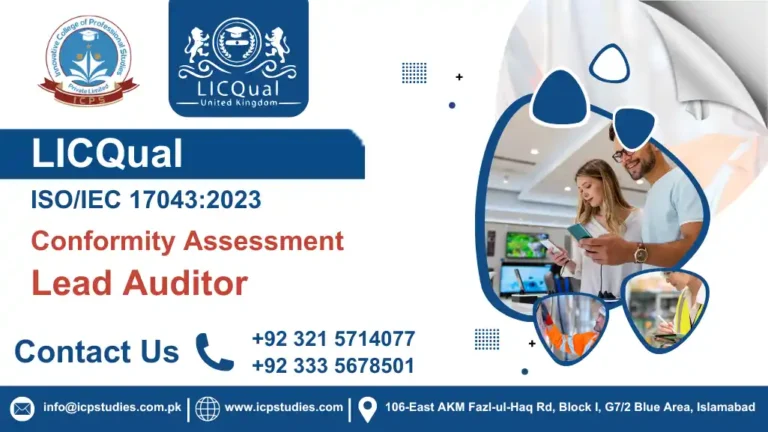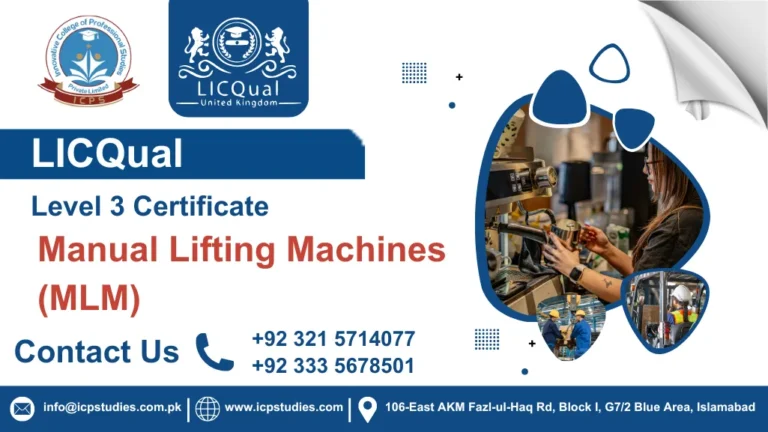In the world of food safety and quality management, the Hazard Analysis and Critical Control Points (HACCP) system stands as a cornerstone. It’s a preventive approach to food safety that identifies, evaluates, and controls hazards throughout the food production process. As the backbone of many food safety management systems, understanding HACCP is vital for professionals in the food industry. That’s where the HACCP Foundation Course steps in, offering a comprehensive introduction to this essential system.
Before delving into the HACCP Foundation Course, it’s crucial to grasp the fundamentals of HACCP itself. Developed in the 1960s by the Pillsbury Company, NASA, and the U.S. Army Laboratories, HACCP was initially designed for space missions to ensure food safety. Since then, it has become globally recognized as a systematic approach to identifying and controlling food safety hazards.
In today’s globalized food industry, ensuring the safety and quality of food products is paramount. The HACCP Foundation Course provides individuals with the knowledge and skills needed to implement and maintain effective food safety management systems. By understanding the principles of HACCP and its application, professionals can contribute to safer food production practices and ultimately protect consumer health. Whether you’re just starting your career in food safety or seeking to enhance your existing knowledge, the HACCP Foundation Course offers a valuable stepping stone towards achieving your goals.
All About HACCP Foundation Course
Course Overview
The HACCP Foundation Course is an educational program designed to provide individuals with a comprehensive understanding of the Hazard Analysis and Critical Control Points (HACCP) system. This course serves as an introduction to the principles, concepts, and applications of HACCP, which is a systematic approach to identifying, evaluating, and controlling food safety hazards.
The HACCP Foundation Course is typically targeted towards a wide range of professionals involved in the food industry, including food safety managers, quality assurance personnel, production managers, food technicians, auditors, and anyone involved in food handling, processing, or manufacturing.
Completing the HACCP Foundation Course provides participants with a solid foundation in food safety principles and practices, enhances their understanding of regulatory requirements, and equips them with the knowledge and skills needed to contribute to the implementation and maintenance of effective food safety management systems.
Study Units
- Introduction to Food Safety and HACCP
- Food Safety Hazards and Risk Assessment
- The Seven Principles of HACCP
- Critical Control Points and Monitoring
- Establishing Corrective Actions
- HACCP Documentation and Record-Keeping
- Implementing HACCP in Food Industry Settings
Entry Requirements
- Age Requirement: Candidates should be at least 16 years old.
- Professional Background: No specific background is required, but some familiarity with food safety or hygiene principles is beneficial.
- Educational Qualifications: There are generally no formal educational requirements, making the course accessible to all.
- Interest in Food Safety: A genuine interest in learning about food safety and hygiene practices is important.
- Communication Skills: Basic verbal and written communication skills are necessary to understand course material and participate in discussions.
- Basic IT Skills: Familiarity with using IT tools for documentation may be helpful but is not mandatory.
These requirements may vary by training provider, so it’s advisable to check with the specific institution offering the HACCP Foundation Course for their exact criteria.
The HACCP Foundation Course is designed for:
- Food Industry Professionals: Individuals working in food production, processing, and distribution who need to understand food safety principles.
- Quality Assurance Personnel: Staff responsible for ensuring compliance with food safety regulations and standards.
- Supervisors and Managers: Leaders in food businesses who oversee operations and need knowledge of HACCP principles.
- Food Safety Inspectors: Professionals involved in assessing food safety practices within organizations.
- Catering and Hospitality Staff: Individuals in restaurants, catering services, and hotels who handle food and need to maintain hygiene standards.
- New Employees in Food-Related Roles: Those entering the food industry who require foundational knowledge of food safety.
- Anyone Interested in Food Safety: Individuals looking to expand their understanding of HACCP and food safety practices.
This course is ideal for anyone seeking a foundational understanding of HACCP principles to enhance food safety in their organization.
Learning Outcomes
The HACCP Foundation Course is designed for a diverse range of individuals within the food industry. Whether you are just starting out or looking to enhance your existing knowledge, this course provides essential training for various roles. Here’s a detailed look at who will benefit from this course:
1. Food Industry Professionals
- Quality Assurance Managers: Those responsible for overseeing food safety and quality control within their organization.
- Quality Control Inspectors: Individuals who monitor and inspect food products to ensure they meet safety standards.
- Production Supervisors: Professionals who manage food production processes and need to understand HACCP to ensure product safety.
2. Restaurant and Catering Staff
- Restaurant Owners and Managers: Owners and managers who need to ensure their establishments comply with food safety regulations.
- Chefs and Kitchen Staff: Those involved in food preparation and handling, requiring knowledge of HACCP to maintain high safety standards.
- Catering Managers: Professionals managing catering services for events, schools, hospitals, and other institutions.
3. Food Handlers and Processors
- Food Handlers: Individuals who directly handle food products at any stage of the supply chain, from receiving raw materials to serving the final product.
- Food Processors: Workers involved in the processing and packaging of food products who need to understand how to maintain safety throughout the production process.
4. Compliance and Regulatory Personnel
- Food Safety Auditors: Auditors who inspect food businesses to ensure they comply with HACCP and other food safety standards.
- Regulatory Affairs Specialists: Professionals responsible for ensuring their organizations comply with local, national, and international food safety regulations.
5. Students and Academics
- Food Science Students: Those studying food science, nutrition, microbiology, or related fields who need a foundational understanding of HACCP principles.
- Academics and Researchers: Researchers focusing on food safety, quality control, and related areas.
6. Food Business Entrepreneurs
- Start-Up Owners: Entrepreneurs starting new food businesses, including restaurants, food trucks, and food production companies, who need to establish strong food safety practices from the outset.
- Small Business Owners: Owners of small food businesses looking to enhance their food safety standards and ensure compliance with regulations.
7. Public Health and Safety Officials
- Public Health Inspectors: Officials who inspect food establishments to ensure public health standards are met.
- Safety Officers: Individuals responsible for the overall health and safety within food production and handling environments.
Why You Should Enroll
Enrolling in the HACCP Foundation Course will equip you with the necessary skills and knowledge to:
- Implement effective food safety management systems.
- Ensure compliance with food safety regulations.
- Protect consumers from foodborne illnesses.
- Enhance your professional credentials and career opportunities within the food industry.
No matter your role, if you are involved in any aspect of food production, handling, or safety, the HACCP Foundation Course will provide you with valuable insights and practical tools to ensure the highest standards of food safety.
FAQs about HACCP Foundation Course







